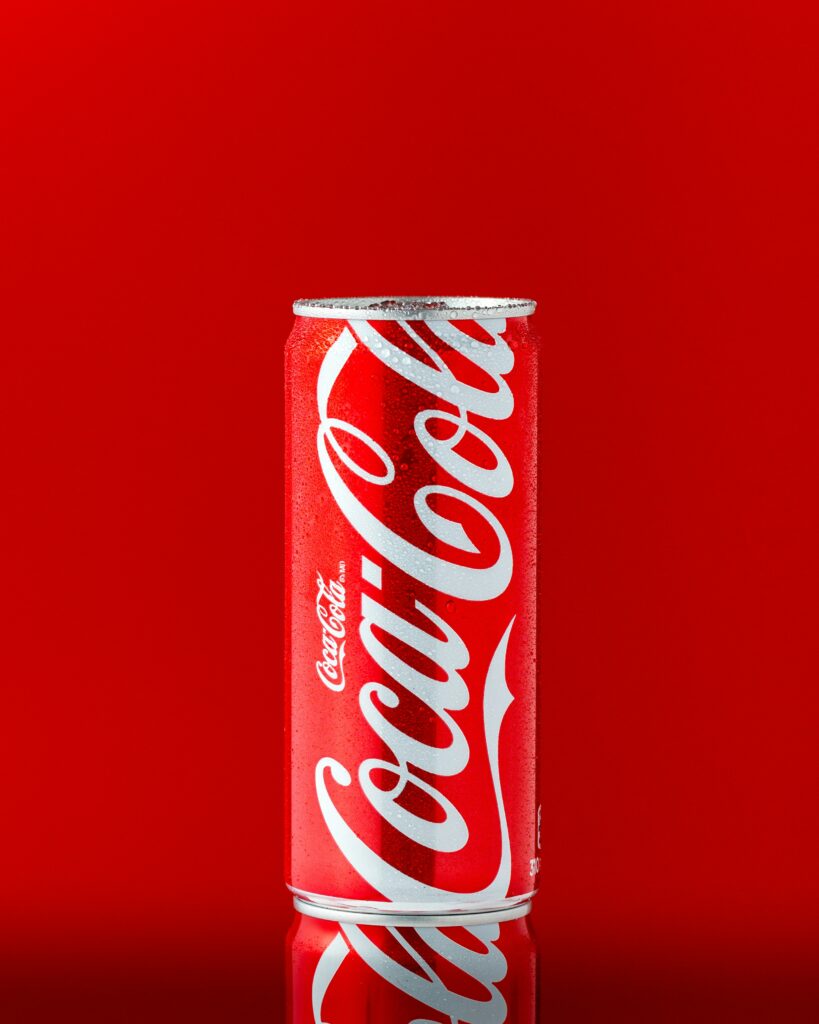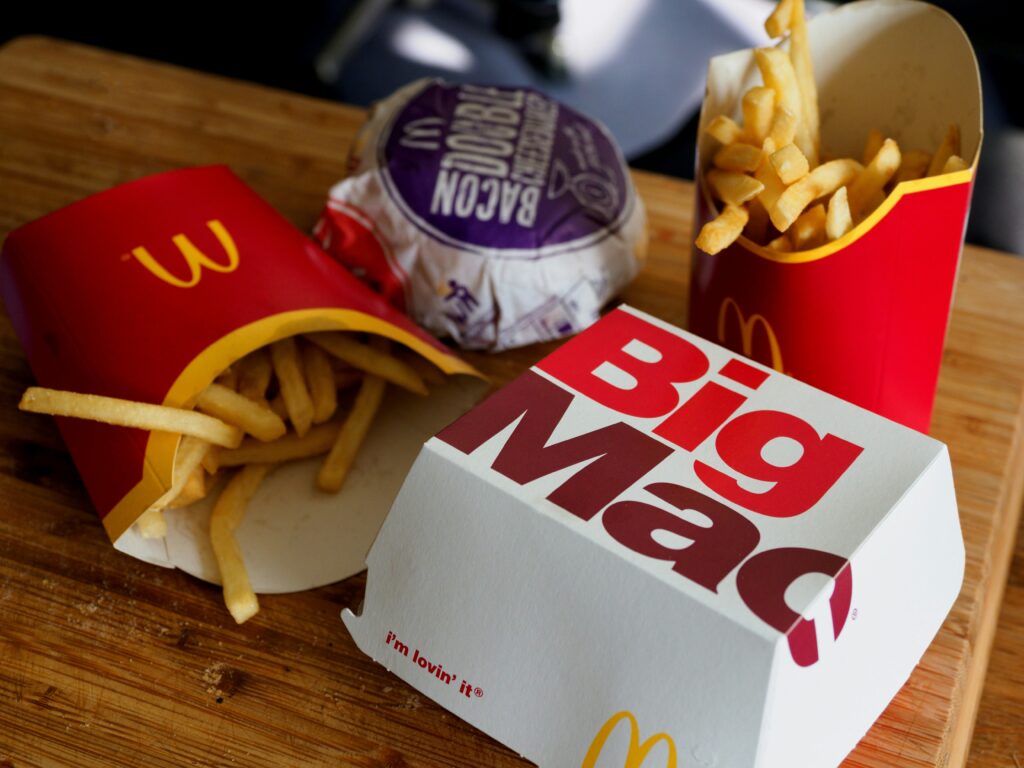Nequosha Anderson
ALF can assist you with securing your work so you are NOT robbed for what's rightfully yours!
← Articles Home
Business
Trademarks
Clients
Contracts
meet Nequosha
Trademark vs Copyright: How to protect your brand and IP
You know you’ve got to protect your sauce—that unique intellectual property you’ve worked so hard to create. But what’s the best way to protect your brand?
That’s where trademarks and copyrights come in. These are two legal tools you can use to protect your sauce and get credit for all the time, money, and resources you’ve put into building your brand and creating original work.
But which one do you need? And what’s the difference between trademark vs copyright?
Well, sit down, and grab a snack because you’re about to get all the tea on these two types of IP protection.
What is the difference between trademark vs copyright
While both trademark and copyright offer long-term protection for your intellectual property, they protect different things and are used for different purposes.
A trademark protects different elements of a company’s brand identity, like a brand name, product name, logo, or slogan. Copyright protects original work an individual creates, like books, music, designs, and artworks.
Basically, copyright protects the entire project (what it is), and trademark protects the source-identifying part of a project (how people recognize you for it). For example, if a band wanted to protect their IP, they could trademark their band name and copyright their songs.
Trademark protection: What you need to know
Trademark protection covers a business owner’s company name, products, and elements of their brand identity, like logos and slogans. When you have a registered trademark, you can prevent other companies from launching a business in the same industry with the same or similar name and/or branding.
Examples of trademarks
The best way to understand the difference between trademark vs copyright is to look at examples of trademarks from popular brands.
1. Coca-Cola

Coca-Cola has trademarked the company name, logo, and variations of the logo as well as its subsidiary brands like Sprite, Barq’s, Powerade, and Dasani.
The company has also trademarked slogans like “taste the feeling” and “it’s the real thing.”
2. McDonald’s

Photo by Brett Jordan on Unsplash
McDonald’s is another well-known brand with a lot of trademarks. The company has trademarked the company name, logos, and variations of logos, including the golden arches. It has trademarked product names like McMuffin and McCafe.
The company has also trademarked slogans like “I’m lovin’ it” and “Over 90 billion sold.”
3. Nike

Nike also has over 250 trademarks, including the company name and its famous Swoosh logo. The company has also trademarked product names like Air Max and Air Jordan.
Nike has also trademarked slogans like “just do it,” “where sport has no rules,” and “Dream it. Make it. Play it.”
How long does a trademark last?
Trademarks last as long as the owner wants to use them alongside the goods or services—as long as the trademark owner renews them. They don’t have a defined expiration date. To maintain and continue using a trademark, you need to send proof of use to the U.S. Patent and Trademark Office (USPTO) between the 5th and 6th year. After the first time, you’ll only need to send proof between every 9th and 10th year.
Do I need to trademark my business name?
You don’t necessarily have to register a trademark for your business name. However, it is a good idea for some business owners. A trademark can be especially important if your business has a very unique name, operates in several states, or could be considered similar to another business.
If your business is successful or you have plans to grow, scale, or sell your business in the future, trademark registration can be a smart move. This helps protect you from others who may want to steal your name.
Do I need to trademark my logo?
Again, you don’t necessarily have to trademark your logo. Just by having a logo and using it for your business, you have common law trademark rights. However, without a registered trademark, your rights are not as secure as they could be. When you register a trademark with the USPTO for your logo, you get legal protection from others who may want to copy your logo or create something similar.
What should I trademark?
Ultimately, the question of what you should trademark can best be answered by a trademark attorney who can help you understand your options for intellectual property protection. An attorney can help you decide what to trademark, guide you through the registration process, and even file your trademark application with the United States Patent and Trademark Office.
An intellectual property attorney also helps protect your small business beyond the initial federal trademark registration. Attorneys specializing in trademark law can help you understand if a violation of your trademark rights is occurring and support you in taking the next steps toward handling trademark infringement.
Copyright protection: What you need to know
Copyright protection covers original works of authorship. This includes artistic, literary, or intellectually created work. Copyright covers many different forms of intellectual property, including books, music, movies, photographs, paintings (in their original and tangible form), and software code. You can also copyright sound recordings, architectural work, and choreography.
With a copyrighted work, you have exclusive rights to reproduce, distribute, display, or perform the creative work while preventing others from copying it without your express permission.
Examples of copyrights
All you’ve got to do is go to your local bookstore, turn on your TV, or flip on the radio to find examples of copyrighted material. Here are just a few specific examples:
- Disney owns the copyright to the film Frozen as well as the lyrics to the song “Let It Go.”
- Stephanie Meyer, the author of Twilight owns the copyright to the entire series of books.
- Dr. Seuss Enterprises, the company that owns all the works of late author Theodor Seuss Geisel, owns the copyright to the book How the Grinch Stole Christmas! (and the trademark for the Grinch name and character.)
How long does a copyright last?
In general, copyright lasts for the life of the author plus 70 years after their death. After that period of 70 years is over, the work becomes public domain, which means intellectual property laws no longer protect it.
Do I need a copyright for my book?
Under U.S. copyright law, copyright protects your book as soon as you put pen to paper (or save your text to a digital file). While it doesn’t require formal registration, registering your artistic works with the U.S. Copyright Office provides a public, searchable record of your work. This is required if you need to bring a copyright infringement lawsuit to federal court in the United States.
Do I need to copyright my music?
While copyright registration is not required for musical compositions or songs, IP lawyers highly recommend it for those who want to protect their intellectual property. As a registered copyright holder, you can pursue a copyright infringement lawsuit if someone were to copy, distribute, or display your work without permission.
Can I copyright an idea?
No. Your business or startup cannot copyright ideas, concepts, discoveries, or procedures. Copyright law does not protect work that’s not in its tangible form, like an idea for a book that hasn’t been written. However, you can protect ideas by filing a patent.
Do I need to copyright work I paid someone to create?
Business owners often pay another person to create work for them, such as a contractor or employee. While the copyright generally goes to the author—the person who made the work—there is an exception for works “made for hire.” When a work is made for hire, the author is not the individual who created the work but rather the person who hired the individual to create the work.
In the case of “work for hire,” the person commissioning the work is the author and copyright owner. Copyrighted works are considered “made for hire” when an employee creates them as part of their regular duties or when a certain type of work is created with an express written agreement between the creator and the person commissioning it.
What should I copyright?
If you’re unsure about what to copyright, the best thing to do is talk with a copyright attorney. They’ll help you understand what intellectual property you should copyright. An attorney can also complete the application process with the U.S. Copyright Office and answer any questions you have about intellectual property rights.
It’s also great to have an IP lawyer in your corner when it comes copyright infringement. If anyone reproduces, distributes, publicly displays, performs, or creates a derivative work without your permission, your attorney can help you handle the next steps to protecting your copyrighted material.

Photo by Christina Morillo
Get support with your trademark vs copyright
Protecting your sauce is one of the most important things you can do as a small business owner to protect your brand identity and intellectual property. If you’re still unsure about what you should trademark vs copyright, it may be time to hire a lawyer instead of trying to navigate the complex world of IP law on your own.
As an intellectual property attorney, I love nothing more than helping business owners protect their assets. Whether you’re ready to file your trademark or copyright or just have questions about what you need to do to protect your hard work, let’s chat.
Get started with a 15-minute call. On this call, no legal advice is given. I will see if I can help you and find the solution that makes the most sense.
Fill out this form to get started.
← Articles Home
Leave a Reply Cancel reply
Nequosha Anderson
ALF can assist you with securing your IP so you are NOT robbed for what's rightfully yours!
← Articles Home
Business
Trademarks
Clients
Contracts
meet Nequosha
© Copyright 2026 Anderson Law Firm PLLC
All Rights Reserved.
Site Design by Leslie Vega Design
Privacy Policy
hello@andersonlawfl.com
(407) 801-8000
BUSINESS LAW
TRADEMARKS
COPYRIGHTS
BUSINESS CONSULTING
Founded in 2013, Anderson Law Firm PLLC is an Orlando, Florida based business law and intellectual property law firm committed to helping entrepreneurs and organizations navigate the complexities of brand protection and enforcement, data privacy, and artificial intelligence governance. Led by Nequosha Anderson, Esq., a first-generation lawyer and experienced advisor, ALF empowers clients to secure their intellectual property, build compliant frameworks, and confidently scale their businesses.